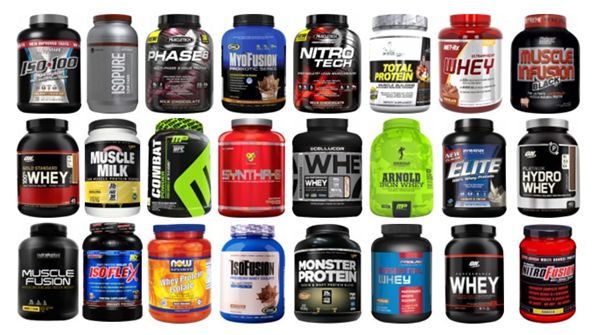Protein Powder Selection for Muscle-Building Fitness Enthusiasts

Protein powder is a staple supplement for fitness enthusiasts aiming to build muscle mass and enhance their physical performance. With a myriad of options available, selecting the right protein powder can be a daunting task. This article serves as a comprehensive guide for muscle-building fitness enthusiasts, highlighting the characteristics of various protein powder types, the relationship between training intensity and protein intake, and the ideal protein powder consumption strategy.
Understanding Protein Powder Types
1. Whey Protein Powder
Derived from milk, whey protein powder is a favorite among muscle-builders due to its high biological value (BV) and rich content of essential amino acids (EAAs), particularly branch-chained amino acids (BCAAs). Whey protein is easily digestible and rapidly absorbed, making it ideal for post-workout recovery. It comes in various forms, including:
· Concentrate: High in protein but may contain some fat and lactose.
· Isolate: Purer form with higher protein content and lower fat and lactose levels.
· Hydrolysate: Pre-digested form for ultra-fast absorption, suitable for those with sensitive stomachs.
2. Soy Protein Powder
For vegetarians and vegans, soy protein powder offers a plant-based alternative. It's rich in high-quality protein and plant sterols, which can help lower cholesterol levels. However, some individuals may experience bloating or digestive discomfort.
3. Egg Protein Powder
Egg protein powder is another excellent choice for those seeking a high-quality protein source. It contains all nine essential amino acids and is easily digestible. Egg protein powder is often used by athletes looking for a slower-digesting option compared to whey.
4. Collagen Protein Powder
Collagen protein powder, derived from animal bones and skin, is particularly popular among women due to its benefits for skin elasticity and joint health. While it's lower in some essential amino acids compared to whey and egg proteins, it's a great addition to a varied protein intake routine.
Training Intensity and Protein Intake
It's crucial to understand that protein powder consumption should align with your overall dietary protein intake and training intensity. Protein is the building block of muscles and plays a vital role in muscle repair and growth. However, consuming protein powder is not solely contingent on training intensity.
High-intensity training sessions, such as weightlifting or resistance training, increase muscle protein breakdown and stimulate muscle protein synthesis. To support this process, it's recommended to consume a protein-rich meal or supplement within 30 minutes post-workout. The general recommendation for protein intake for muscle-building is between 1.2g to 1.6g per kilogram of body weight per day. However, this can vary based on individual needs, body composition, and training goals.
Strategic Protein Powder Consumption
Post-Workout Recovery: Timing is crucial. Consuming a protein shake immediately after a workout ensures rapid amino acid delivery to muscles, aiding in recovery and growth.
Meal Replacement: On busy days, a protein shake can serve as a convenient meal replacement, ensuring you meet your daily protein requirements without compromising on nutrition.
Pre-Sleep Supplementation: Taking a protein shake before bed can provide a slow, steady release of amino acids overnight, supporting muscle recovery and growth during sleep.
Conclusion
Choosing the right protein powder for muscle-building involves understanding the unique characteristics of each type and aligning your consumption strategy with your training intensity and overall dietary needs. By incorporating a variety of protein sources and timing your intake strategically, you can maximize muscle growth, enhance recovery, and achieve your fitness goals. Remember, consistency, proper nutrition, and adequate rest are the cornerstones of successful muscle-building. Happy lifting!
